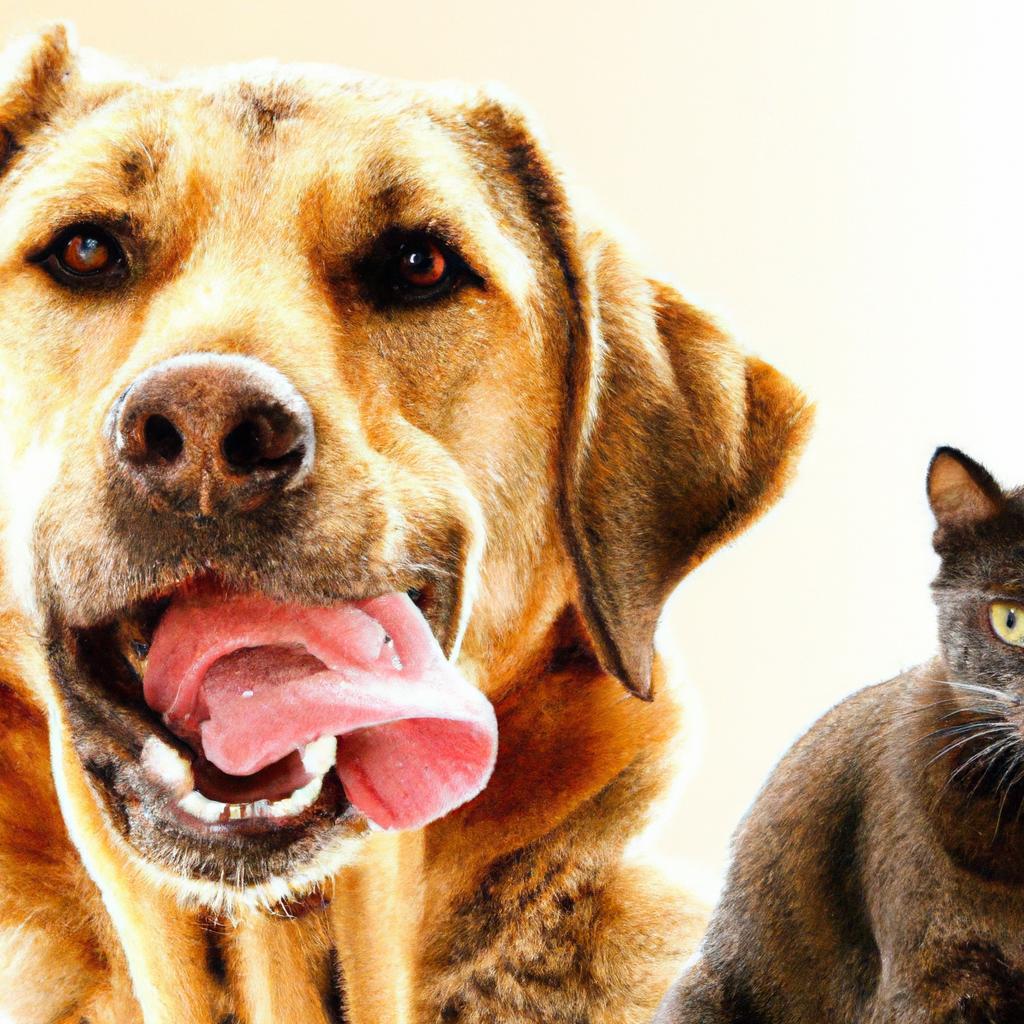In a small town, a firefighter named Jake faced a life-threatening blaze. As flames engulfed the building, his loyal dog, Max, refused to leave his side. Despite the chaos, Max barked and pulled Jake away from danger, saving his life. This bond exemplifies the unwavering loyalty dogs have for their owners. Studies show that dogs possess an innate ability to sense human emotions and respond with devotion. Their loyalty is not just instinct; it’s a profound connection built on trust and love. Dogs truly are man’s best friend, standing by us in our darkest hours.
Contents
- Understanding Canine Loyalty and Its Roots in Behavior
- The Emotional Bond Between Dogs and Their Owners
- Fostering Loyalty Through Training and Socialization
- Recognizing Signs of Loyalty and Strengthening the Relationship
- Q&A
Understanding Canine Loyalty and Its Roots in Behavior
Canine loyalty is a fascinating aspect of dog behavior that has evolved over thousands of years. Dogs are descendants of wolves, and their social structures are rooted in pack dynamics. This inherent pack mentality fosters a strong bond between dogs and their human companions. When a dog perceives its owner as the leader of the pack, it develops a sense of loyalty that is both instinctual and emotional. This bond is not merely based on survival; it is also shaped by affection and trust.
Research has shown that dogs are capable of forming deep emotional connections with their owners. They can recognize human emotions and respond accordingly, which enhances their loyalty. For instance, dogs often exhibit behaviors such as:
- Following their owners around to stay close and feel secure.
- Seeking comfort when their owners are upset or stressed.
- Displaying protective behaviors when they sense a threat to their owner.
These behaviors indicate that dogs not only rely on their owners for basic needs but also seek emotional support and companionship, reinforcing their loyalty.
The training and socialization a dog receives also play a crucial role in shaping its loyalty. Positive reinforcement techniques, such as treats and praise, help dogs associate their owners with rewarding experiences. This creates a cycle of trust and loyalty, where the dog feels valued and understood. Additionally, consistent routines and clear communication further strengthen this bond, making the dog more inclined to remain loyal to its owner.
Moreover, the concept of loyalty in dogs is not one-dimensional; it encompasses various forms of attachment. Dogs may exhibit loyalty through their willingness to obey commands, their eagerness to please, and their desire to be near their owners. This multifaceted loyalty is a testament to the unique relationship between dogs and humans, highlighting the emotional depth that exists within this bond. Understanding these behavioral roots can help owners foster an even stronger connection with their canine companions.
The Emotional Bond Between Dogs and Their Owners
The relationship between dogs and their owners transcends mere companionship; it is a profound emotional connection that enriches both lives. Dogs possess an innate ability to sense their owners’ feelings, responding with empathy and affection. This emotional intelligence allows them to provide comfort during times of stress or sadness, reinforcing the bond that exists between them. The loyalty exhibited by dogs is not just a reflection of their training but a testament to their deep-seated attachment to their human counterparts.
Research has shown that when a dog gazes into its owner’s eyes, both parties experience a surge of oxytocin, often referred to as the “love hormone.” This biochemical reaction fosters a sense of trust and security, creating a feedback loop that strengthens their relationship. The more time spent together, the deeper the emotional ties grow, leading to a partnership built on mutual understanding and respect. This unique connection is what makes dogs not just pets, but integral members of the family.
Moreover, dogs are incredibly perceptive creatures, often picking up on subtle cues in their owners’ behavior and emotions. They can sense when their owners are happy, anxious, or even unwell, and they often adjust their behavior accordingly. This responsiveness is a clear indication of their loyalty, as they strive to be a source of support and joy. The ability of dogs to provide unconditional love and companionship is a significant factor in why they are often referred to as “man’s best friend.”
In addition to emotional support, the bond between dogs and their owners is reinforced through shared experiences. Engaging in activities such as walks, playtime, and training sessions not only enhances the dog’s skills but also deepens the connection. These moments of interaction create a sense of belonging and partnership, allowing both the dog and owner to thrive. Ultimately, the loyalty of dogs is a reflection of the love and care they receive, making it a reciprocal relationship that benefits both parties immensely.
Fostering Loyalty Through Training and Socialization
Building a strong bond with your dog is essential for fostering loyalty, and one of the most effective ways to achieve this is through consistent training. Training not only teaches your dog essential commands and behaviors but also establishes you as a reliable leader in their eyes. When dogs understand what is expected of them, they feel more secure and confident, which enhances their loyalty to you. Regular training sessions can be a fun and rewarding experience for both you and your dog, reinforcing your connection.
Socialization plays a crucial role in developing a loyal companion. Exposing your dog to various environments, people, and other animals helps them become well-adjusted and confident. A well-socialized dog is less likely to exhibit fear or aggression, which can strain the bond between you. By introducing your dog to new experiences in a positive manner, you are not only enriching their life but also solidifying their trust in you as their protector and guide. This trust is a cornerstone of loyalty.
Incorporating positive reinforcement techniques during training and socialization can significantly enhance your dog’s loyalty. Rewarding good behavior with treats, praise, or playtime encourages your dog to associate you with positive experiences. This approach fosters a deeper emotional connection, as your dog learns that you are a source of joy and safety. Over time, this bond will translate into unwavering loyalty, as your dog recognizes you as their primary caregiver and companion.
Lastly, consistency is key in both training and socialization. Dogs thrive on routine and predictability, which helps them feel secure in their environment. By establishing a regular training schedule and consistently exposing your dog to new experiences, you reinforce their understanding of your expectations and their role within the family. This consistency not only aids in their development but also strengthens the loyalty they feel towards you, creating a lasting partnership built on trust and mutual respect.
Recognizing Signs of Loyalty and Strengthening the Relationship
Understanding the signs of loyalty in dogs can deepen the bond between you and your furry companion. One of the most telling indicators is their behavior when you are around. If your dog follows you from room to room, seeks your attention, and shows excitement when you return home, these are clear signs of their devotion. Additionally, dogs often exhibit protective behaviors, such as barking when strangers approach or positioning themselves between you and potential threats, showcasing their instinct to safeguard their loved ones.
Another way to recognize loyalty is through your dog’s willingness to engage in activities with you. Dogs that eagerly participate in walks, playtime, or training sessions demonstrate a strong desire to connect and please their owners. This engagement not only reflects their loyalty but also reinforces the relationship you share. When your dog looks to you for guidance during these activities, it signifies trust and respect, essential components of a loyal bond.
Strengthening this relationship involves consistent positive reinforcement. Rewarding your dog with treats, praise, or affection when they display loyal behaviors encourages them to continue these actions. Establishing a routine can also enhance your connection; dogs thrive on predictability and knowing what to expect from their owners. By incorporating daily rituals, such as feeding, walks, or playtime, you create a sense of security that fosters loyalty.
Lastly, investing time in understanding your dog’s unique personality and needs can significantly enhance your relationship. Each dog has its own way of expressing loyalty, whether through cuddling, playful antics, or simply being by your side. By observing and responding to these individual traits, you not only affirm their loyalty but also cultivate a deeper emotional connection. This mutual understanding lays the groundwork for a lasting bond, ensuring that your dog feels valued and secure in your companionship.
Q&A
-
Do dogs really understand loyalty?
Yes, dogs have a remarkable ability to form strong bonds with their owners. Research shows that dogs can recognize their owner’s emotions and respond accordingly, indicating a deep understanding of loyalty.
-
How do dogs demonstrate their loyalty?
Dogs exhibit loyalty through various behaviors, such as following their owners around, seeking physical closeness, and showing protective instincts. These actions reflect their commitment and attachment to their human companions.
-
Can a dog’s loyalty change over time?
While dogs are generally loyal, their loyalty can be influenced by factors such as changes in environment, treatment, or socialization. Positive experiences and consistent care can strengthen their loyalty, while negative experiences may diminish it.
-
Are certain dog breeds more loyal than others?
While loyalty can be found in all breeds, some breeds, such as German Shepherds and Golden Retrievers, are often noted for their strong loyalty to their owners. However, individual personality and upbringing play a significant role in a dog’s loyalty, regardless of breed.
the unwavering loyalty of dogs to their owners is not just a charming notion; it is a profound bond rooted in instinct and companionship. Embrace this unique relationship, and you’ll discover a loyal friend for life.

大家好,我是彼得潘,專業的手法身體治療師。我喜歡探索和研究各種主題,並透過與人工智慧的合作分享專業、實用、有趣的文章。我們定期進行人工審核,以確保內容的準確性。如果您發現文章中有任何不準確的地方,請隨時與我們聯繫,我們會及時糾正。您可以透過 [email protected] 與我們聯繫。



